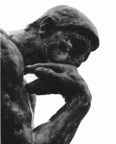Those were my thoughts as I confidently navigated the touch screen on a sturdy looking Diebold electronic voting machine. While the paper scroll was loudly printed to "confirm" my vote, I strained to read the text through the magnified glass window conveniently built into the face of the seemingly secure machine. I felt confident that my vote was correctly cast and tallied. I felt confident - even though I had no idea what was going on behind the scenes.
Later, I happened upon a radio interview with Bev Harris - a leading election and voter fraud expert. Initially, I was shocked by what she said. However, because I work with computers every day, I knew in my heart that she was speaking the truth.
Bev described case after case of voter and election fraud involving electronic voting machines. She explained the hidden aspects, lack of accountability and opportunities for fraud that exist within an electronic voting system.
According to Bev, in an election there are “four essential processes that have to be available to the public for authentication without need for special expertise”. These processes are-
1) The voter list - who can vote?
2) The participating voter list - who did vote?
3) Chain of custody - whether the ballot which is counted is the same one that was cast.
4) The counting of the vote – meaning a public counting of the vote.
In a hidden electronic system, each of these four phases is highly vulnerable to fraud. She named three nations in Europe (Germany, the Netherlands and Ireland) that have “seen through this” and mothballed their electronic voting machines as a result. At the end of the interview she explained meaningful common sense reforms, which are needed to minimize the occurrence of election fraud. With respect to reform, (at 19:02 in the audio clip) she says, “we need to look at what is meaningful”.
What we want is the public to be able to see and authenticate the original count. That doesn’t mean something two weeks later. That means the original count - before it goes anywhere – at the polling place. There are places that are doing this. In fact, there are kind of some halfway measures that are meaningful. In Humboldt County California and now Yolo County California have added this – they just bought an off the shelf scanner from Office Depot. And they are taking their ballots and also running them through that scanner and making them available to the public on CD and putting them on the web. They are anonymous. There is absolutely nothing wrong with this… They are putting them out right away and you can see – you can count them yourself… …there is free open sourced software… The point being, that this is not expensive and it is very very public. And it brings the public in and allows them to see what is going on. But we have to keep remembering that what we want is a public count. The original count, not something later down the road, needs to be something that is done in public or that the public can authenticate without need for special expertise. That is one thing.Next time - given the same choice, I will cast my vote on the paper ballot.
The next thing is “who voted”. This is getting to be the next area the next frontier where they are keeping it secret. It is getting harder and harder to see the poll books or even have poll books. They are starting to transfer these into electronic databases which “now you see it, now you don’t”. In Tennessee, I found 3,200 more votes than voters in the participating voters list.
Listen to the entire radio interview HERE on KishAudio.
Learn more about Bev Harris and Black Box Voting –
Bev Harris is an American writer, activist, and founder of Black Box Voting Inc., a national nonpartisan, nonprofit elections watchdog group. She helped popularize the term Black Box Voting, while authoring a book of that title. Original investigative work by Harris has been featured in the New York Times, Washington Post, Time Magazine, CNN, ABC, MSNBC, CBS, Fox News, and NBC, as well as by the Associated Press, NPR, and many other mainstream news outlets. Bev Harris's web site is blackboxvoting.org
Related Links -
Wired Magazine: Serious Error in Diebold Voting Software Caused Lost Ballots in California County
Scoop: Embezzler Programmed Voting System
Associated Content: Claims that Harry Reid Stole Nevada and Other Claims of Voter Fraud
Prison Planet: Did Harry Reid Steal Nevada?









No comments:
Post a Comment